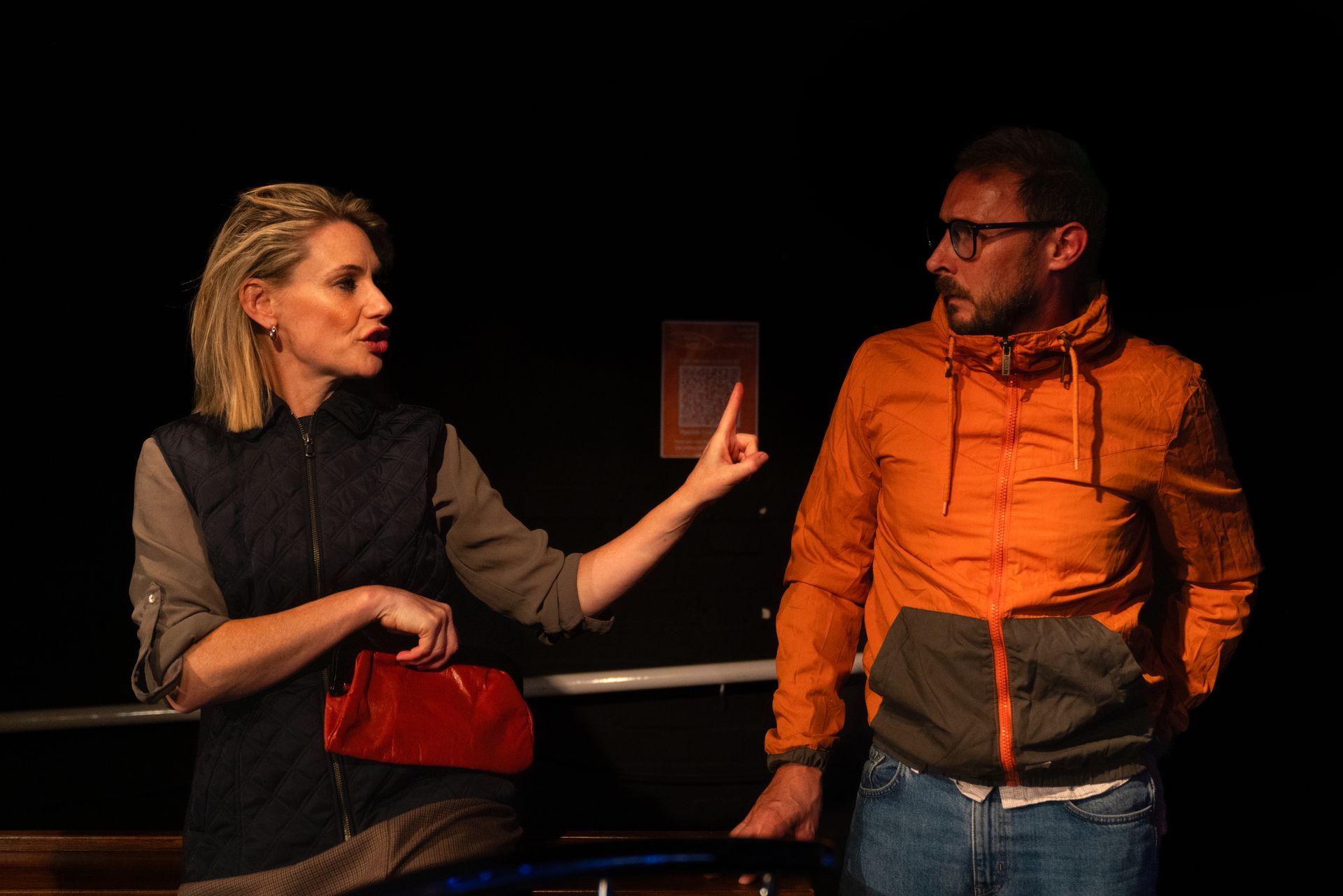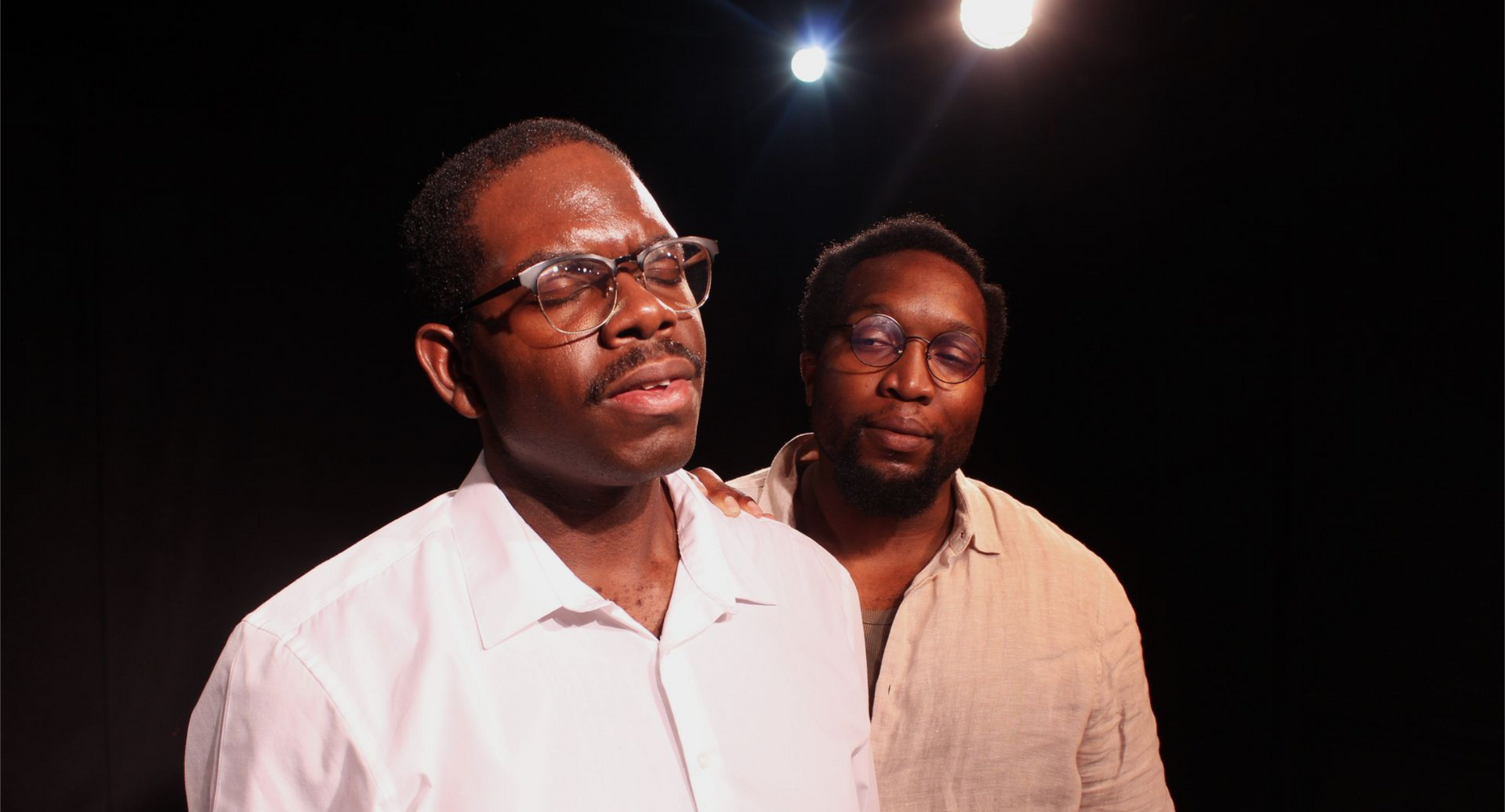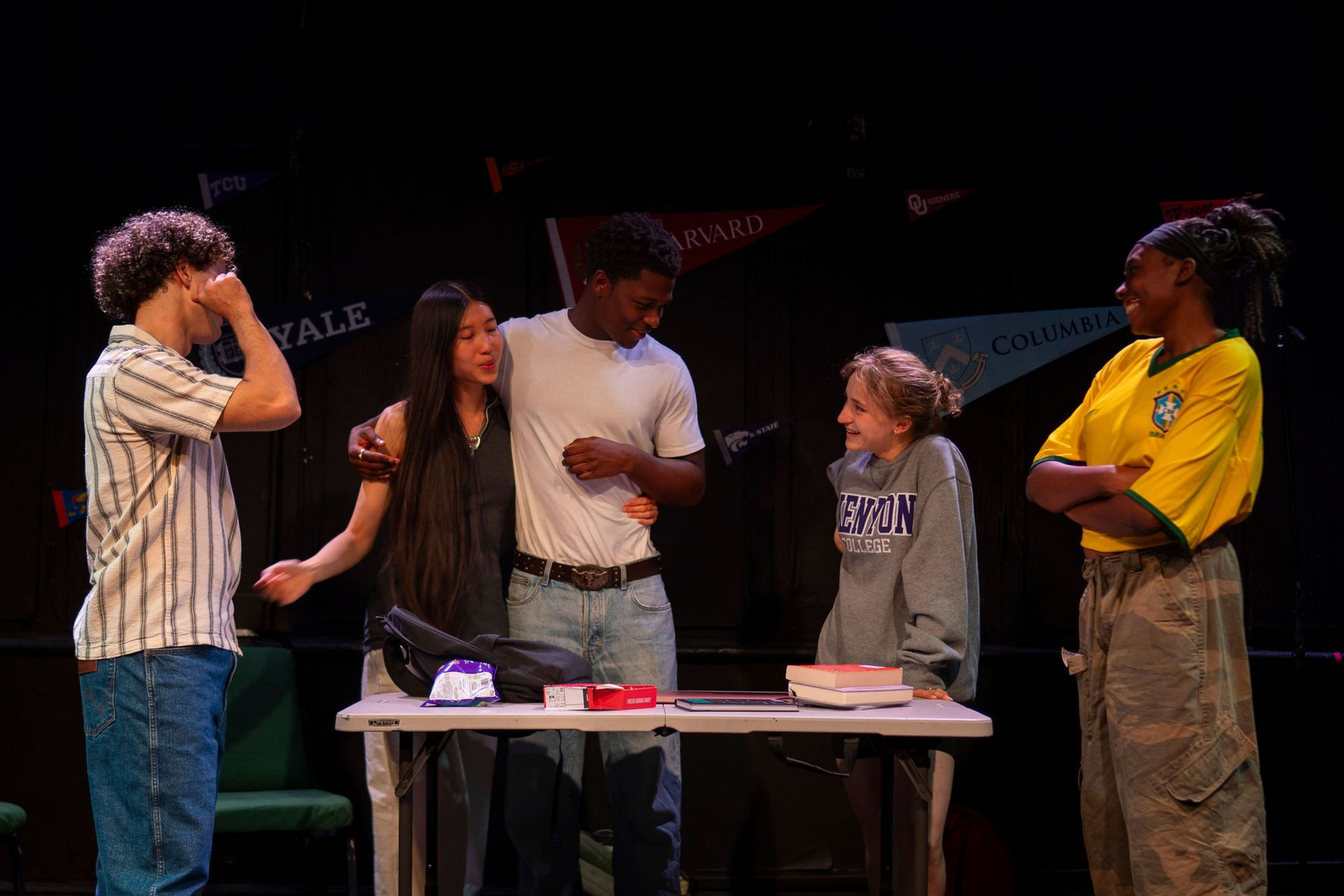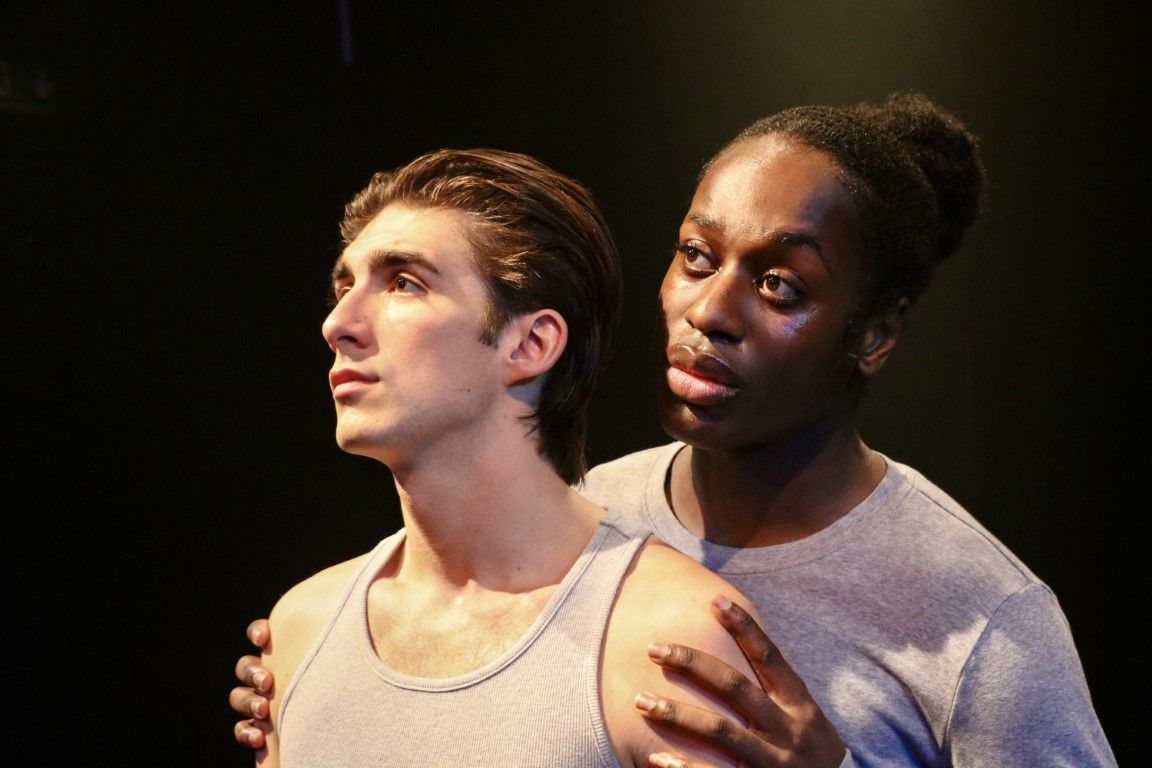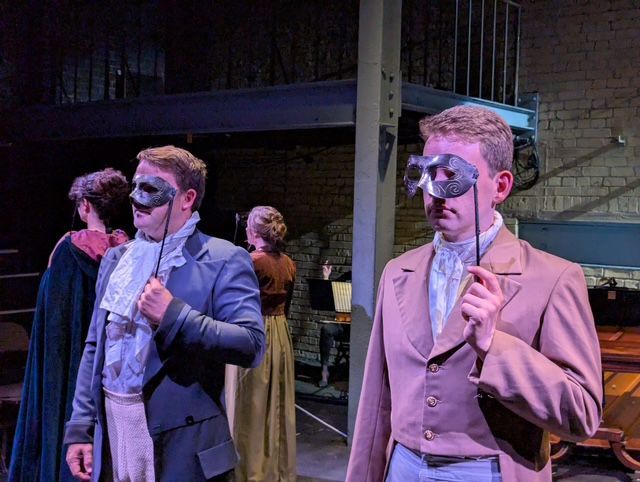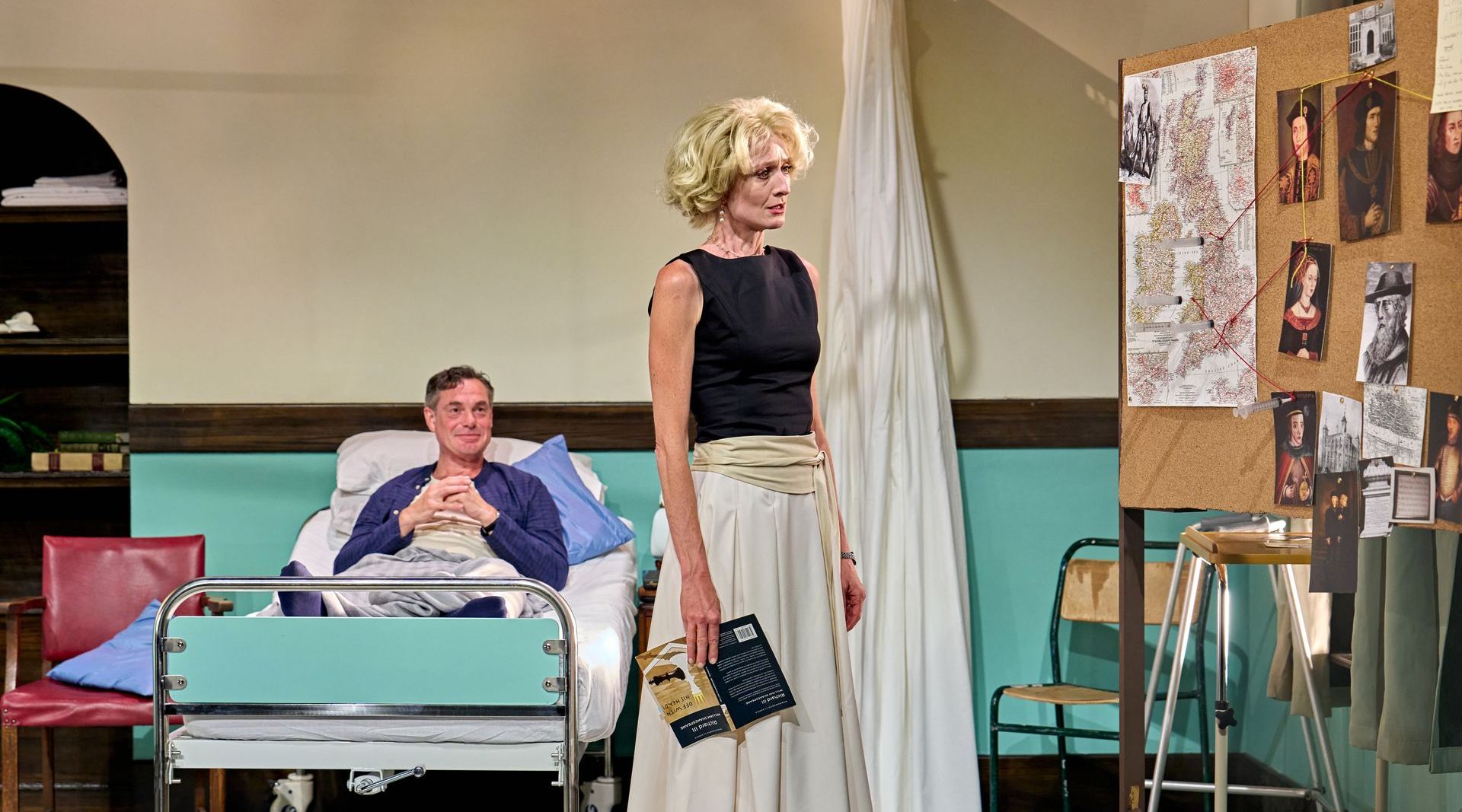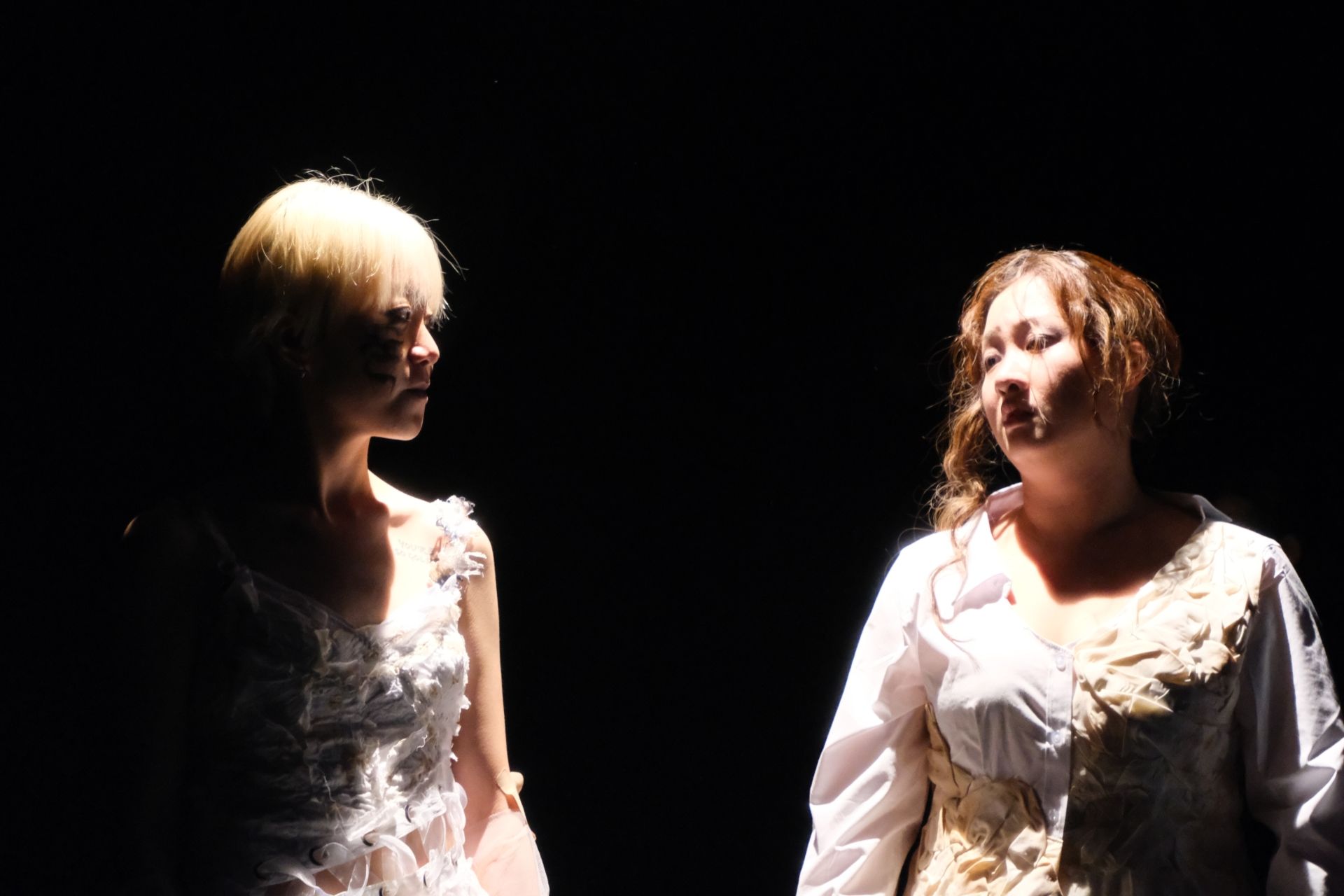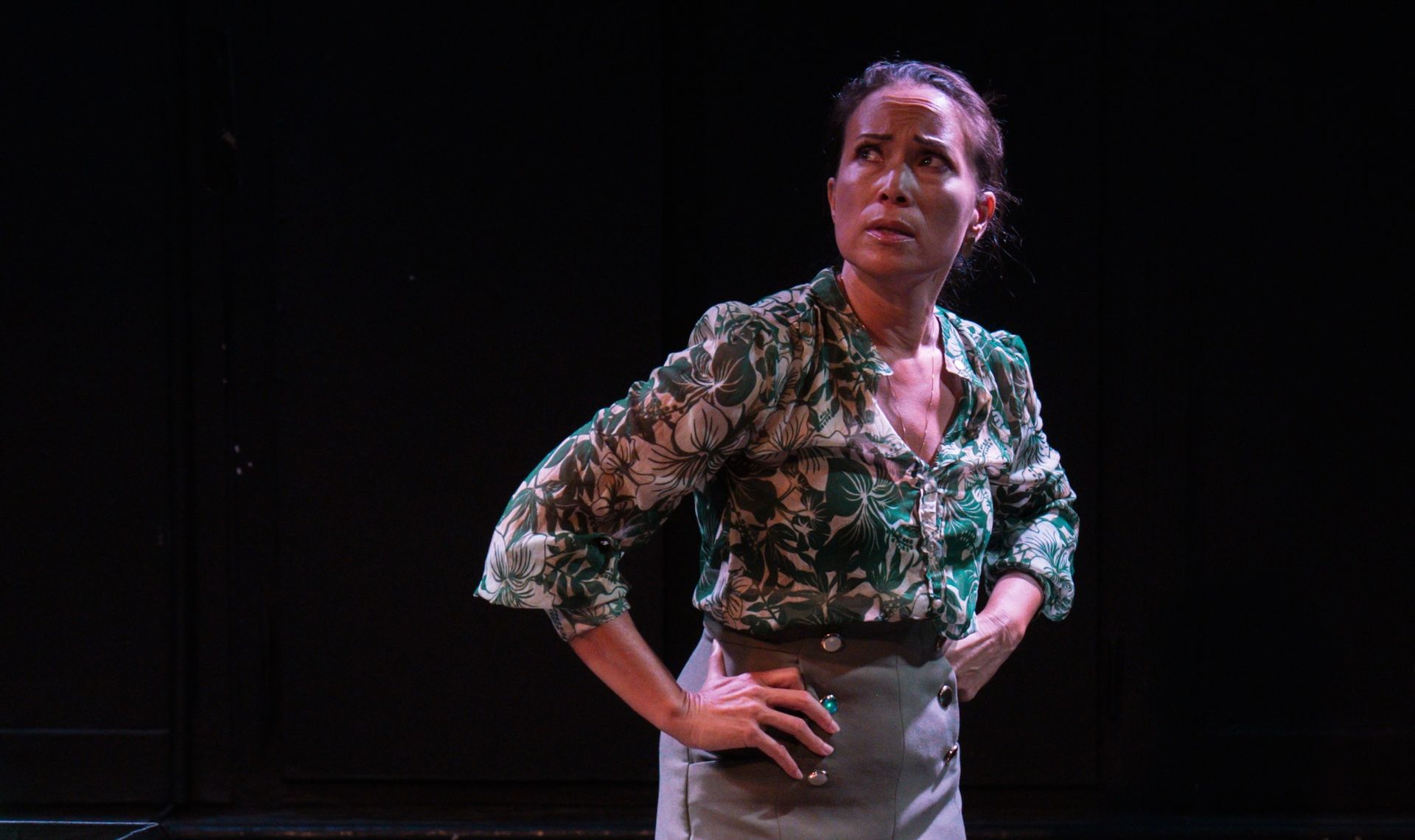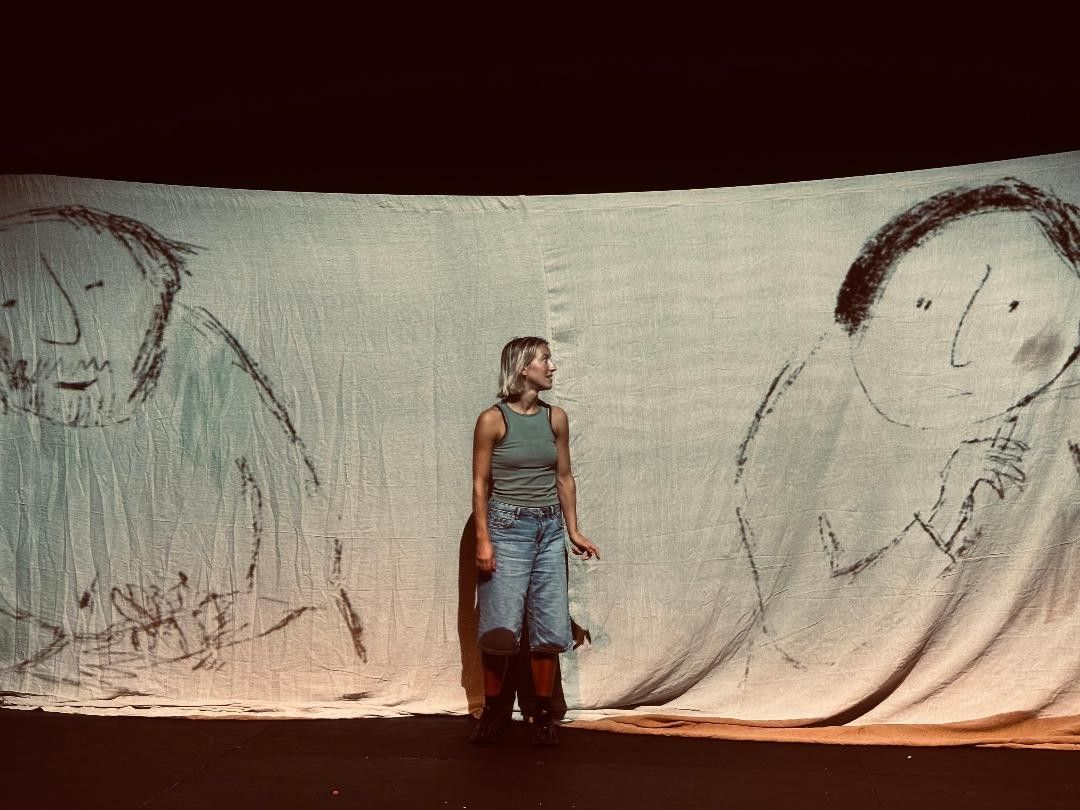by Alix Owen
•
23 August 2025
“Romantic, sensual, delicate and mysterious” ★★★ ½ Down at the Jack Studio Theatre, you'll find a testament to what you can achieve with two people and a black box. In Lightbulbs by TJ Roderick and Heather Woodhouse, two young men, Oran (Reuben Oladehin) and Ezekiel (Max Burns), orbit each other and the possibility of a deep and lasting love. In kaleidoscopic shards and snapshots we see their collision, their insecurities, and their growth, as a couple whose only barrier to love is themselves. The play describes itself as an absurdist take on modern queer "situationships" (that modern phenomenon about unofficial relationships of circumstance). I wouldn't call it absurdist myself, or a situationship, but it does do a couple of remarkable things in its elegant inquiry into love and romance. So though it does have its elements, calling Lightbulbs absurdist, for me, could be a bit of an excuse for opacity and occasional eagerness for poeticism. For instance, there's a touch of muddled metaphors with moths and lightbulbs, which I don't think is deliberate. The characters are described as lightbulbs, but are very clearly represented by a recurring motif of the moth. Don't get me wrong, there are some really nice, borderline profound lines dusted through some slightly bum imagery: a moth landing on water is described as "dipping its toes in", which puzzled me because...well, moths don't have toes. For me though, the biggest flaw is that it undermines its own maturity by focusing too much on selling itself as an examination of "situationships". I personally think that that insistence devalues its ability to connect with a huge range of people, who'll find their own love stories and life experiences in these characters. There's something a bit different to absurdism going on here. So I don't think this play is doing what it thinks it's doing: I actually think it's on the verge of doing something much better. In the style of some other great two-handers on love and relationships – let's say Constellations by Nick Payne, Heisenberg by Simon Stephens, or Cock by Mike Bartlett (okay, not a two-hander but you get what I mean…) – Lightbulbs has the potential for quiet profundity in the everyday. It shows us with simplicity the undertow of evolving feelings, shared memories, and comforting familiarity, moving with the changing tides of time and self-acceptance. If you lean in closely though, you'll feel the autobiographical edges, which make it seem obvious to the writer what's going on while the audience hasn't got a clue. It's not clear what the timeframe of this relationship is, for example, how long it lasts, or where they are. We know one of them is twenty-two at one point, but they seem to grow into several years' worth of domesticity by the end. This is what I mean about the opacity that I'm not always sure is deliberate. Without those earnest performances by Oladehin and Burns, and the accomplished execution overall, it could stumble into being self-involved, disguised as absurdism. It doesn't, but it's close. Where this piece really excels though is in its movement (no credit given for this, so perhaps it's director TJ Roderick's doing). Wow. These are two very physically demanding roles, and the performers deliver balletic strength and grace without hardly breaking into a sweat. They leap and tangle around the stage. The push-and-pull and tug-of-war of love is rendered in dance and limbs, gliding across time and space and memory and all four corners of the dark. All the world's a stage here and all of life is danced upon it. This is where incredible movement design meets terrific direction, as an evolving relationship unfolds in front of us and takes us further into the psyche than theatre would usually allow. We see it carved out in choreography and light. That skillful synthesis of Liam Walton-Bell's magnificently haunting lighting design and Andrés Peña, Parsa Valiany, and Emma Haines' stirring music achieves a rare and moving depth. These elements are the absolute stand-out. The chiaroscuro on stage weighs heavily like heartbreak, turning the actors into a Caravaggio as they play out their love. In its final third though it runs the risk of meandering, growing perhaps unintentionally repetitive, but for me it just about gets away with it. That's kind of the theme overall with this piece. It's on the precipice of being something great. As it is though, it's not entirely clear what's going on, which can often lead to the common trap of bloating into self-satisfaction and grandiosity. In this case, it does manage to avoid that. Just about. And, to be fair, that is an achievement in itself. Instead, Lightbulbs allows for personal interpretation and reading by the audience. Every relationship can be found in this story somewhere. It feels open and inviting and culminates in a powerful and satisfying end. The whole thing is romantic, sensual, delicate and mysterious, and the queerness element is handled gracefully, without being alienating or clichéd. This is a gentle and understated piece of theatre. It's not perfect, but there, in the darkness, just about, is the flickering of distant brilliance. Production photos by Maria Rangoni Lightbulbs Written by Heather Woodhouse & TJ Roderick Directed by TJ Roderick Produced by Woodhouse&Roderick Performances by Reuben Oladehin and Max Burns Jack Studio Theatre, 19 – 23 August 2025 Box Office: https://brockleyjack.co.uk/jackstudio-entry/lightbulbs-2/ Reviewed by Alix Owen
